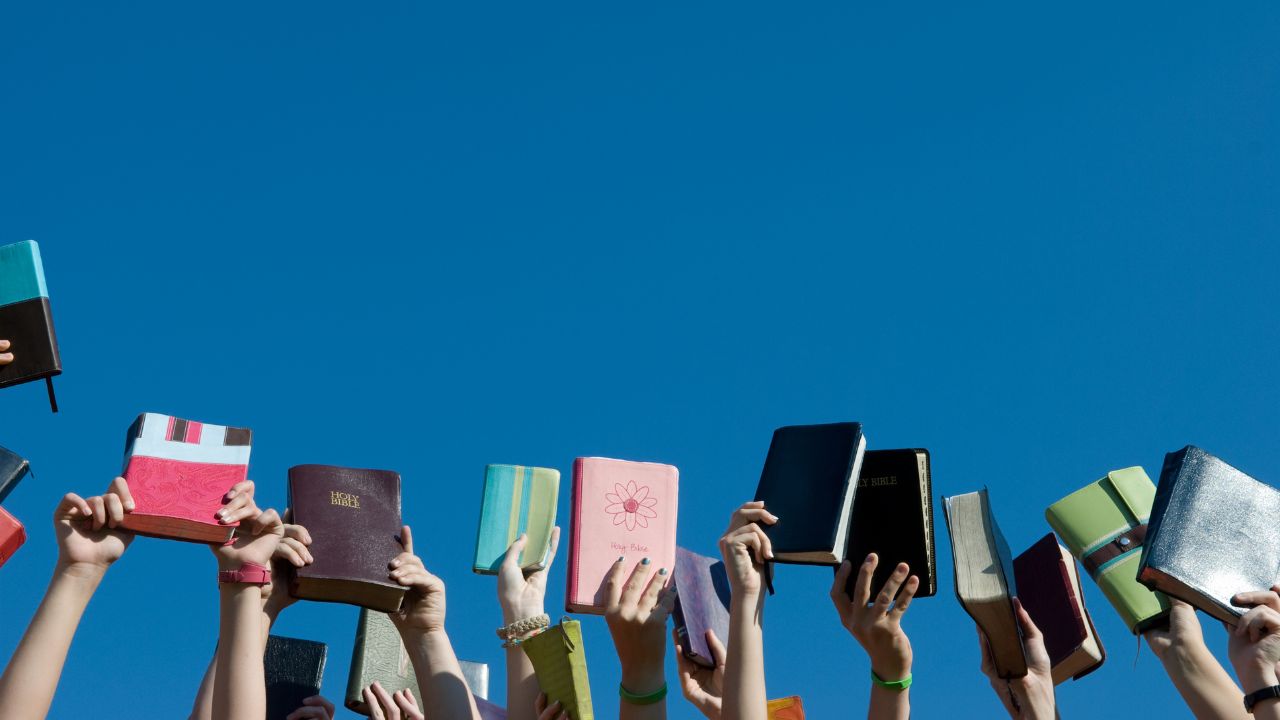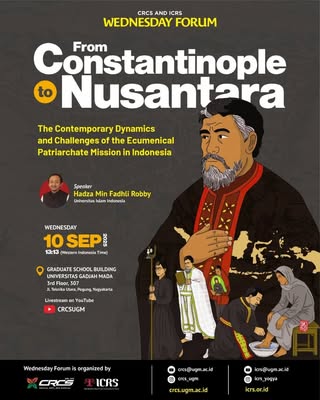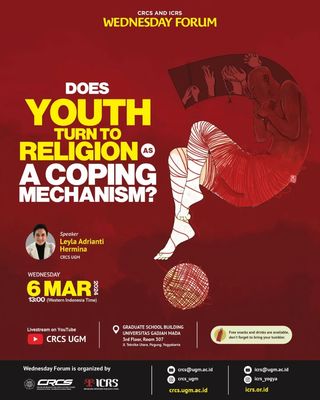
Athanasia Safitri
The first Wednesday Forum in March was carried out by an alumna from The Center for Religious and Cross-Cultural Studies (CRCS) UGM on March 6. Leyla Adrianti Hermina talked about how youth may use religion as a coping mechanism and presented the results of her thesis research. She opened with the question “Do Youth Turn to Religion As a Coping Mechanism?” as she wanted the audience to start their self-examination as to whether religion could be a solution amidst many problems youth are facing. She started by stating that according to Varkey Foundation (2017), Indonesian teenagers are ranked as the happiest as a result of their strong religiosity in 20 countries.
However, a recent report concluded that one in three Indonesian teenagers, which is 34.9 % of the youth population in Indonesia, has mental health issues (I-NAHMHS report, 2023). She continued by speaking about six student suicide cases in Yogyakarta in 2023 and how it challenged her to research whether religion could prevent mental health issues and suicidal thoughts among youth. She was eager to understand that religious activities the youth tend to engage in to distract them from mental health problems. She also looked for other things that help youth in the age range of 19-26 years old in coping with traumatic events in their life.
Youth mental health issues
Hermina argued that a developed sense of spirituality can act as a significant shield in protecting from mental health issues. According to research findings, youth face mental health problems due to grief and loss of someone dear in their life, financial issues, and academic struggles. These came from several respondents dealing with family issues, lack of communication with friends or relatives, economic challenges, and unreachable support systems. Most respondents coped with their problems by being more active in religious activities including prayer, spending time with friends, doing exercises both physically and mentally, as well a going to therapy.
Another finding suggested that some youth may not have a particular religious affiliation, but they work on their spiritual well-being to be able to deal with their mental problems. However, the important key in Hermina’s research was that all respondents found that the best support system, mainly from friends, has a significant role in helping them during difficult times, instead of their religious habits or traditions. She concluded that the urgency of having support systems is vital for young people. The activities cover sharing sessions, counseling, problem identification, and support groups so the youths may feel that they have support.
Accompaniment as a tool of support system
The audience during the discussion shared their experiences, ideas, and questions in response to the findings. One expressed concern about what kind of coping mechanism structure helps the most in academic struggles, and one person asked about the major cause of mental health problems so people can seek prevention. Another person examined the tendency of having mental health issues as a “Fear of Missing Out” trend in social media accounts, up to the awareness of public understanding where mental health problems are mostly seen as urban issues that need modern approaches. The glorification of certain coping mechanisms may be beneficial to specific groups while other methods may work best for other groups. It is not merely the active practice of religion but more in the level of mature spiritual well-being of a person, along with a good support system.
As Hermina herself stated, further research is needed to better understand the relation of religion to youth challenges and mental health problems. People today must look at collective accompaniment as a tool for coping. As religious teachings might be an issue for a neutral approach to life difficulties, personal spiritual growth will definitely be different from one person to the other, let alone one’s act on a particular topic. A more universal method must be initiated in many groups and levels of society, either in the family, educational institutions, workplaces, the neighbourhood, and religious communities. Support systems in the form of total accompaniment will only function best to beat mental health issues if it is done accordingly customised for the needy, regardless of spiritual, religious, economic, or sociocultural traditions.









